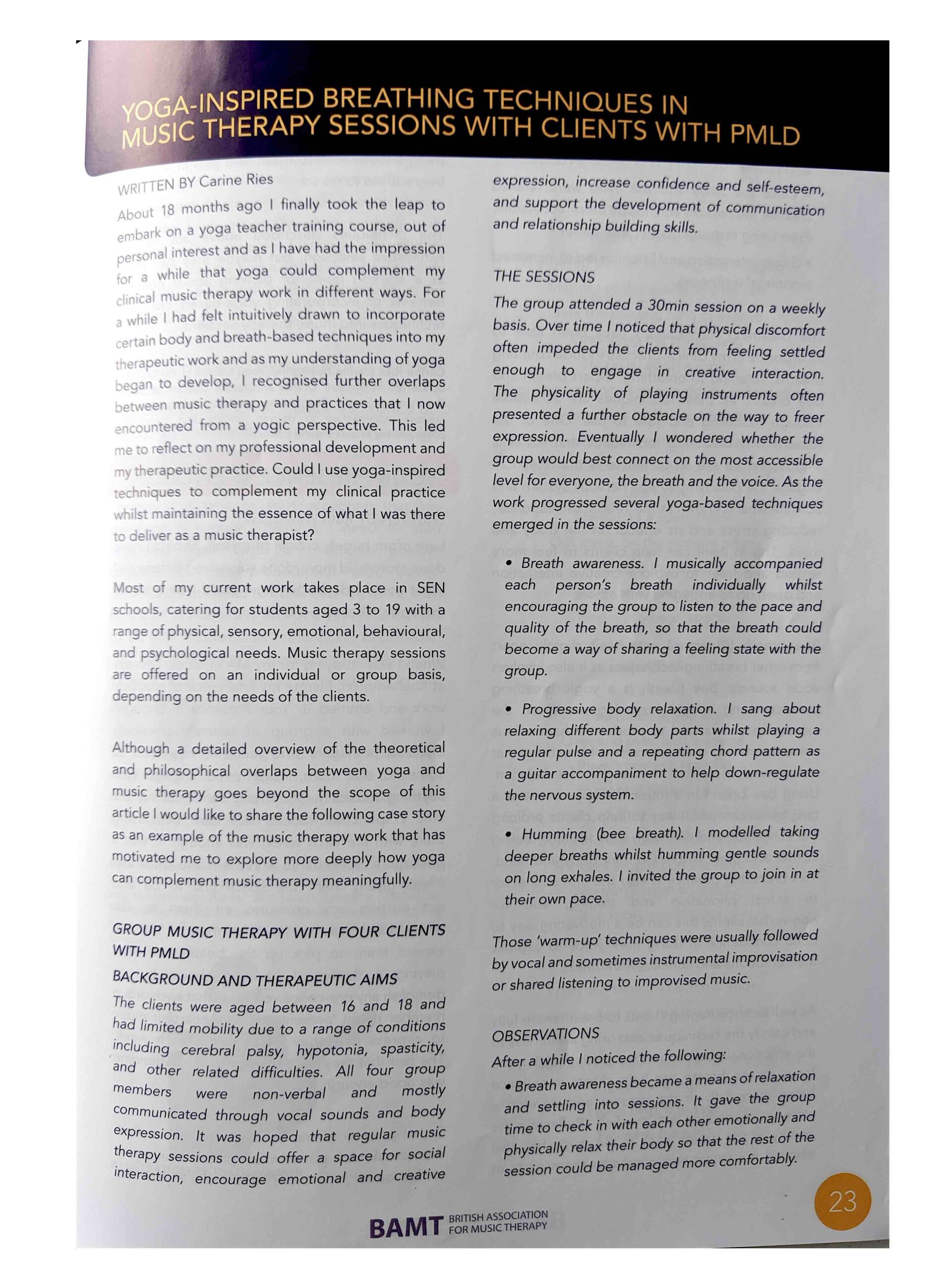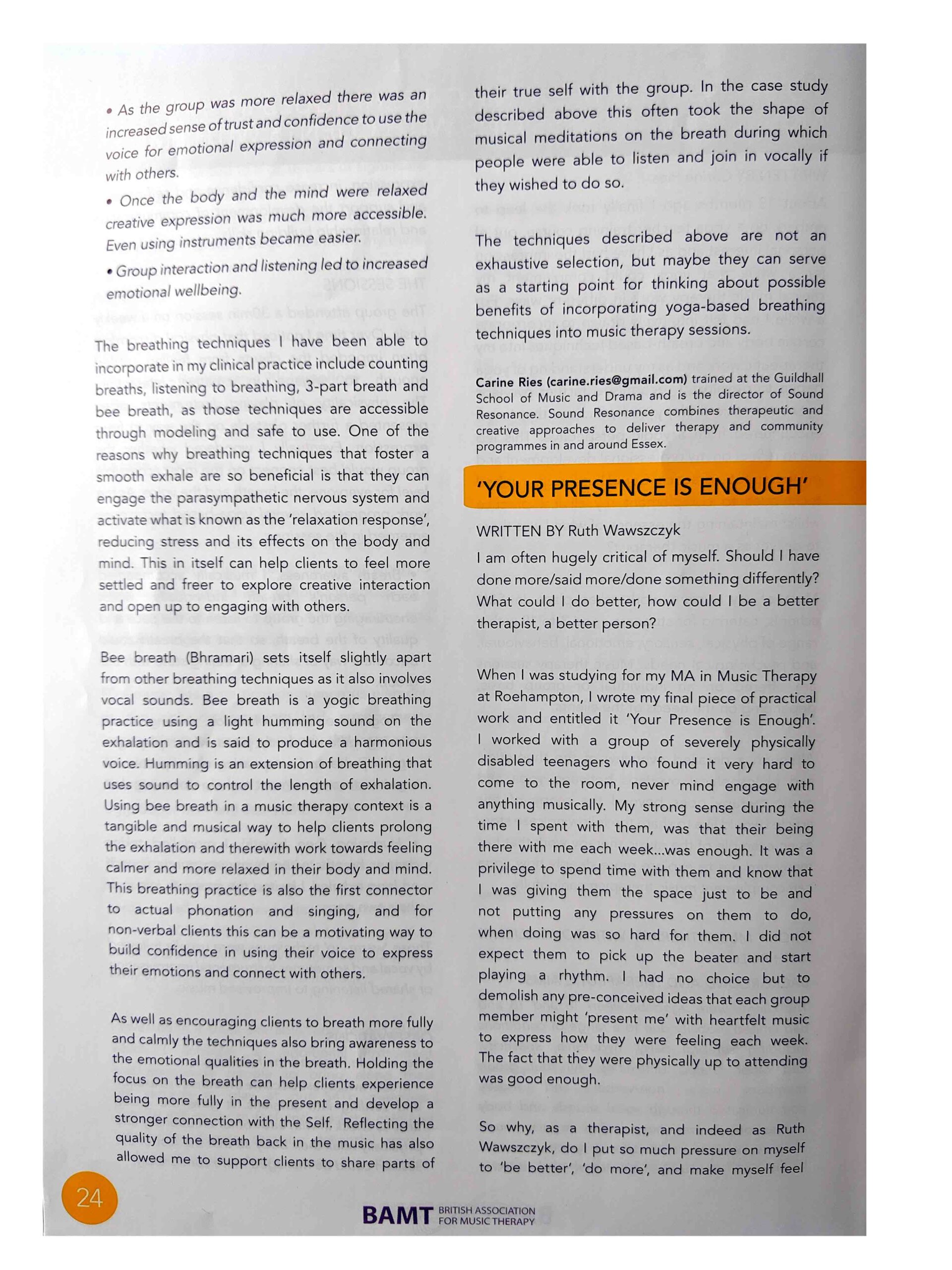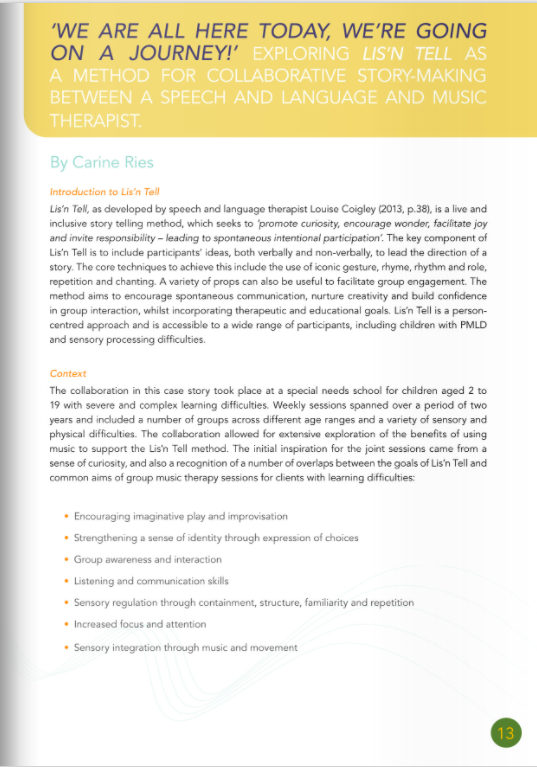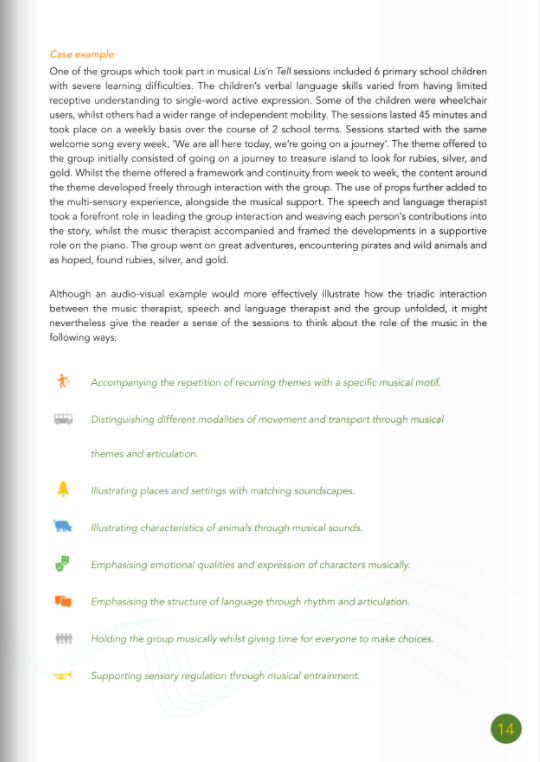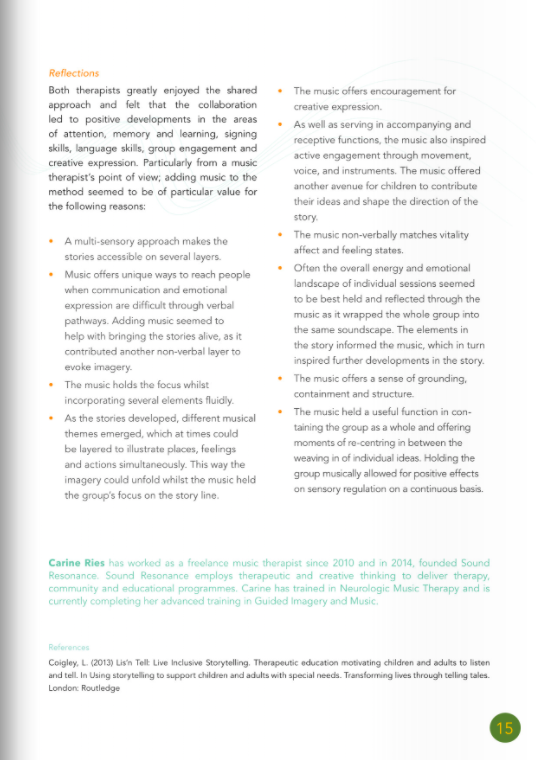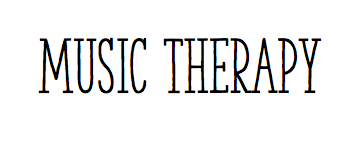
Music Therapy is a psychological therapy, which uses the unique qualities of music as a means of expression and interaction between therapist and client. Music therapy encourages transformative experiences by using accessible instruments, music tech, sound, voice, breath, or movement, so that people can communicate in their own musical language. Sessions include active and/or receptive interventions and are tailored to meet the therapeutic needs of each individual person. Music allows expression and exploration beyond and deeper than words, and is particularly helpful where verbal expression is difficult.
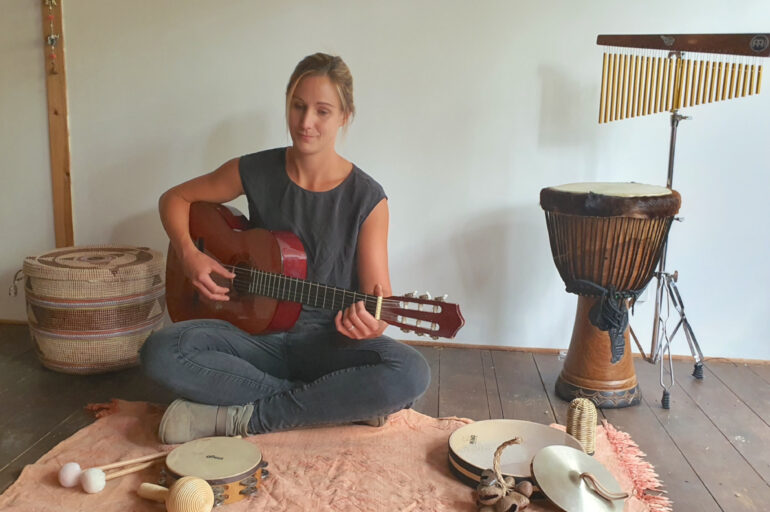
Music therapy is used with a wide range of people of all ages and can help with
- stress, anxiety, depression
- sensory regulation
- emotional exploration and expression
- processing difficult life situations and transitions
- trauma
- bereavement and loss
- isolation and relationship difficulties
- development and rehabilitation of motor skills
- awareness, focus and attention
- aggression and challenging behaviour
- relaxation skills
- creative expression
- play skills
- social interaction
- language and communication skills
- breathing and vocal expression
As a client you might experience
- interactive musical play
- listening to music
- songwriting and recording
- musical improvisation
- singing and vocal expression
- musical breath work
- moving with the music
- reflecting on thoughts and emotions verbally
- practicing motor skills with musical support
Music therapy sessions are suitable for individuals and groups, depending on therapeutic goals and settings. Music therapy can offer effective interventions in the areas of personal development, learning difficulties, dementia care, family and post-adaptation work, and more. If you would like to find out about music therapy for specific conditions, please get in touch here.

This case story shows how a group of young people with profound and multiple learning difficulties was able to connect through music and yoga-inspired methods.
This case story shows a cross-disciplinary collaboration with a speech and language therapist, facilitating group sessions for children with learning difficulties.
For a range of clients music therapy sessions can be delivered online. The presentation here shows a number of example of remote music therapy sessions for clients with PMLD and visual impairments
Here is a short introduction to music therapy in SEN schools and various therapeutic applications with a range of clients.

